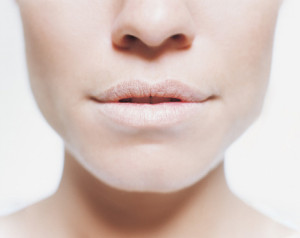2 Studies That Prove Acupuncture Prevents Dry Mouth
Last week, I went over how acupuncture can help relieve the symptoms of chemotherapy-induced xerostomia, more commonly known as dry mouth. This week, I’m going to discuss two different studies that show you just how effective acupuncture can be.
While quite a few cancer treatment symptoms can be treated with acupuncture, using it as a treatment for dry mouth is extensively covered by medical literature. And several decades of studies all agree that it works. Let’s look briefly at two recent studies with large test groups.
Study #1: Acupuncture for Xerostomia Among Patients With Nasopharyngeal Carcinoma (2011)
In 2011, a randomized control trial was set up with 86 patients suffering from chemotherapy-induced dry mouth resulting from head and neck cancer. 40 patients were randomly assigned acupuncture treatment, while the other 46 were put on standard care. The study was conducted at the Fudan University Shanghai Cancer Center.
Patients received treatment on the same days they received chemotherapy. Progress was measured using the Xerostomia Questionnaire and the MD Anderson Symptom Inventory-Head and Neck (MDASI-HN) checklist. Additionally, researchers followed up with the patients for up to 6 months post-surgery.
The results were conclusive. Starting at week 3, scores on the Xerostomia Questionnaire were significantly lower for patients receiving acupuncture than for the control group. Similar findings were reported for MDASI-HN scores. Overall, the acupuncture group produced more saliva than the control group, and didn’t report as much difficulty with dry mouth.
Study #2: APIX: Acupuncture vs. Oral Care for Xerostomia in Patients with Head and Neck Cancer (2012)
A study conducted one year later in the UK reported similar results. This time, head and neck acupuncture was pitted against traditional oral care treatment.
An even bigger group of 145 patients with chronic radiation-induced dry mouth were recruited for the study. Patients were given either two rounds of group oral care or eight acupuncture treatments. Patient-reported outcomes were measured at weeks 5, 9, 13, 17, and 21. Saliva production was also measured.
As it turns out, acupuncture compared favorably to oral care in terms of relief for dry mouth. It significantly reduced patient-reported problems such as “sticky saliva”, a common side effect of xerostomia.
More Xerostomia Studies to Come
Next week, I’ll go over a study that rounds up all acupuncture-for-xerostomia studies and compares their results.



